May 10, 2019 0 Comments
We can talk about our products, our heritage animals, and our regenerative practices all day, but nothing makes the impact of customers seeing and tasting for themselves on a farm tour.
Transparency is paramount for us at Joyce Farms, so we’re always happy to take customers out to the farms whenever we can. But last year we began hosting larger 2-day farm tour events that not only show the farms and animals, but really educate about why we do what we do, how we do it, and how our practices impact the bigger picture of human, animal, and environmental well-being.
Last week, we had our first Farm Tour event of the year. The 2-day event began with dinner, drinks, and a short introductory presentation at Ashley Christensen’s Bridge Club in downtown Raleigh.
There’s a reason Ashley was the James Beard Foundation’s pick for Outstanding Chef this year! The custom menu featured many of our Heritage products. It was a delicious way to kick things off!

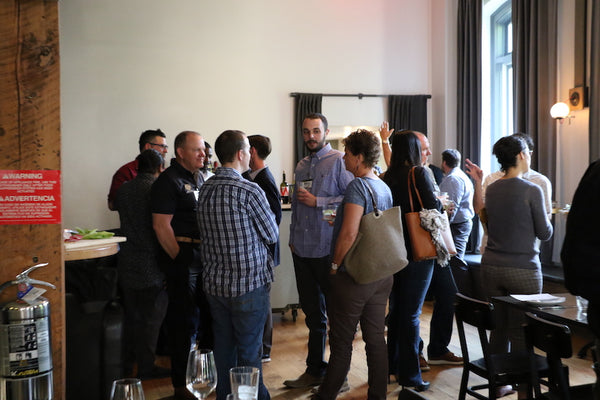
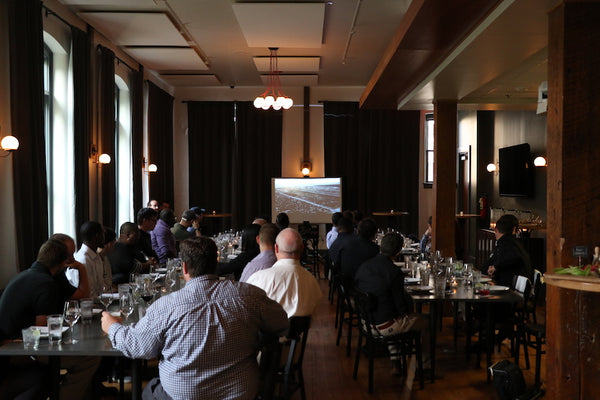
Bright and early the next morning, we headed to the farms. Our first stop was in Kenansville, NC where we visited farm partner Adam Grady. Our guests were able to learn first-hand about his transition from sustainable to Regenerative Agriculture, and the incredible changes he has seen in only a few years.
We partnered with Adam a little over 2 years ago to begin raising animals for our Heritage Pork program. At that time, he was running a sustainable operation. Adam was willing to transition to Regenerative Agriculture, something we require for all of our Heritage farms, but it was not without a little healthy skepticism. After all, industrial practices are still the mainstream method that his neighbors and most farmers practice; they’re even still taught in agricultural school.
In a calculated leap of faith, Adam agreed to transition 30 acres to regenerative management- enough for us to begin our pork program. He worked closely with Dr. Allen Williams, to put regenerative practices in place.
Here’s what happened in less than one year:
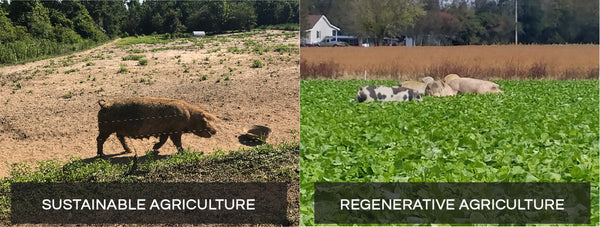
After that first season, he said, “I wish I had just done it all!” The results were so incredible that now, he’s farming 100% of his land (over 1200 acres) regeneratively.
During our visit in Kenansville, our guests saw our livestock, but also examples of regenerative methods.
They saw our rotational grazing methods in action. We showed how we divide larger pastures into temporary smaller paddocks using poly wire, rotating livestock between those paddocks daily, sometimes multiple times a day. In fact, we moved some cattle while we were there, just to show quickly and easily this can be done.
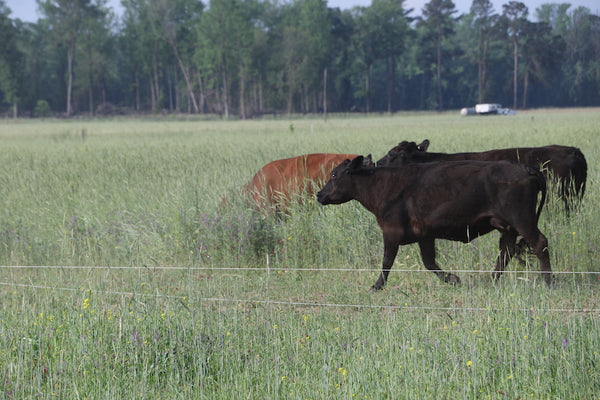
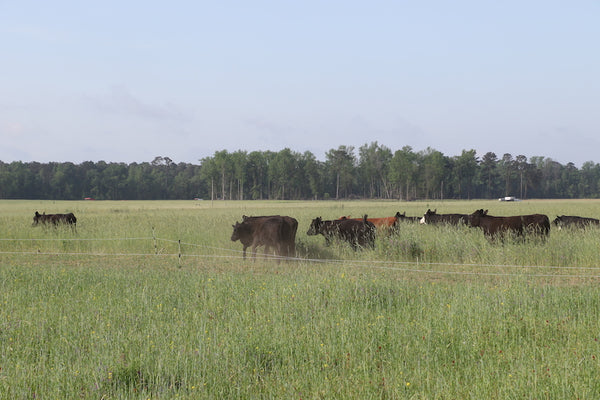
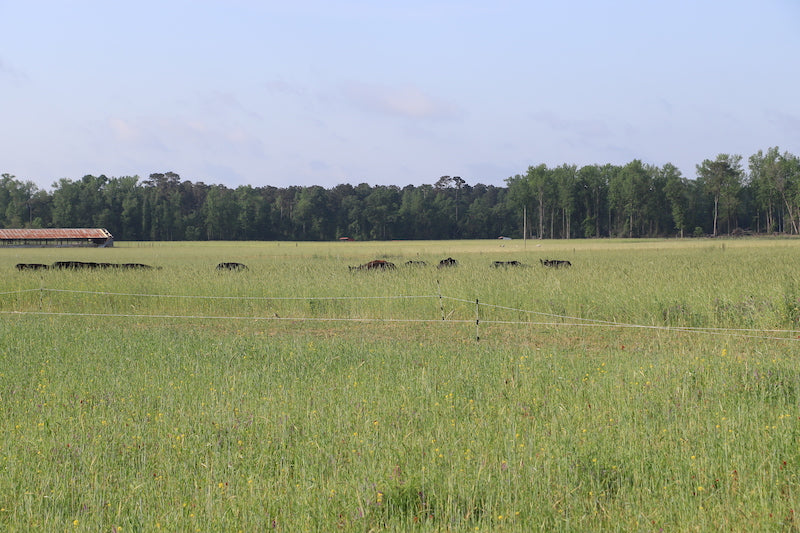
We took a close look at the pastures themselves, as Dr. Allen Williams explained the 5 principles of soil health and how Adam implements each of them:
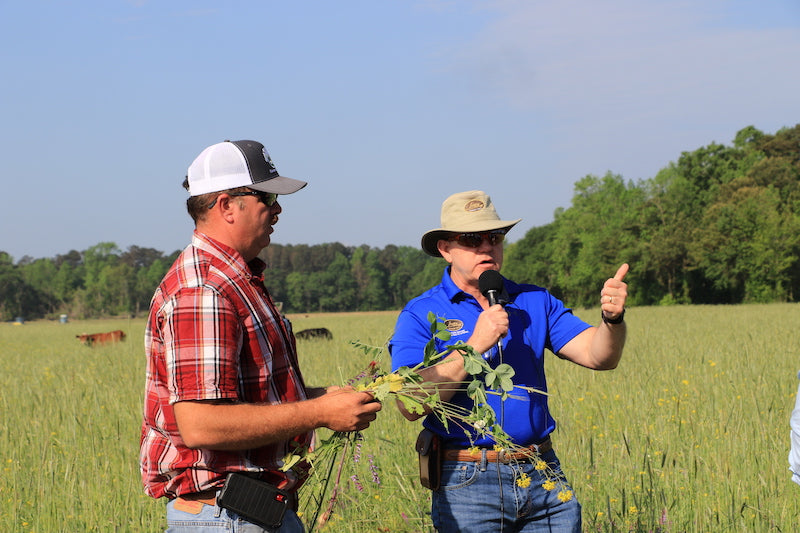
We talked about forbs (aka “weeds”) and Allen explained how they are actually a GOOD thing. They offer medicinal and anti-parasitic benefits to livestock when they eat just a few bites a day (which saves farmers money). They are also excellent microbe attractors because they are deeply and extensively rooted. Those roots send out root exudates or sugars that attract a wide variety of soil microbes, which are critical for soil health.
Adam showed some of his regenerative farming equipment, including the roller crimper he uses to turn live, grazed cover crop into a bed of organic matter that protects the soil. He uses a no-till planter to plant cash crops into that rolled bed of plant matter, for tremendously efficient growth and yield.
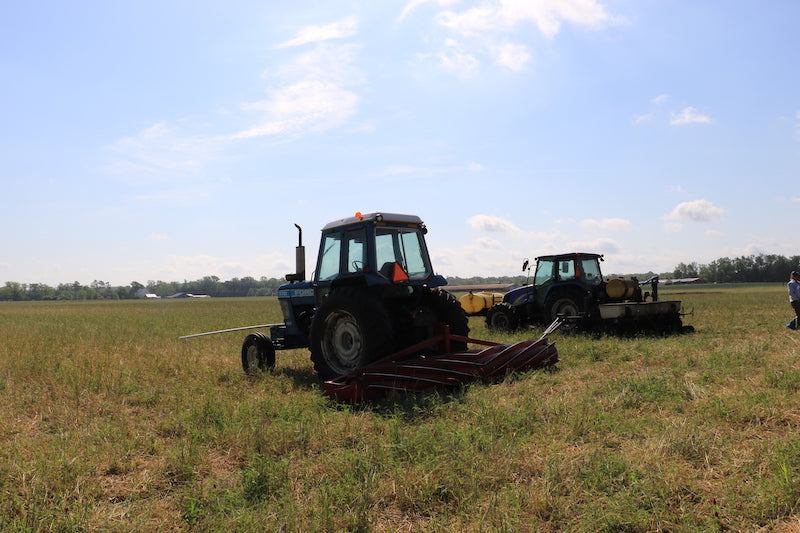
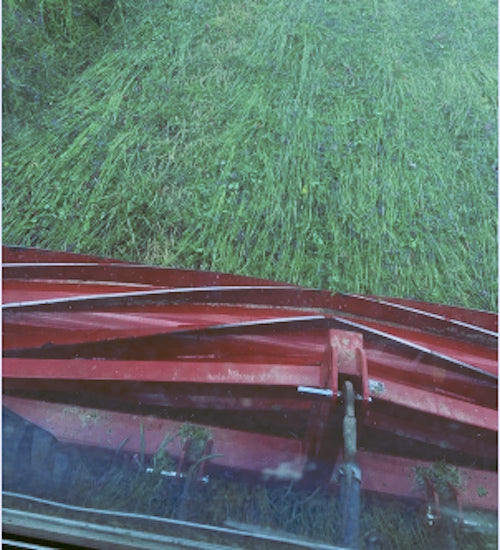
As the trolley ride continued, we talked about heritage breeds and how we are working to bring back some of these now-rare genetics that fell out of favor with the rise of industrial agriculture. First we visited the Gloucestershire Old Spot pigs that we raise for our Heritage Pork.
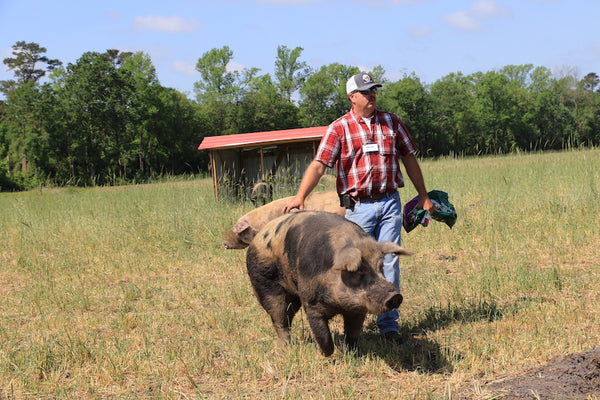
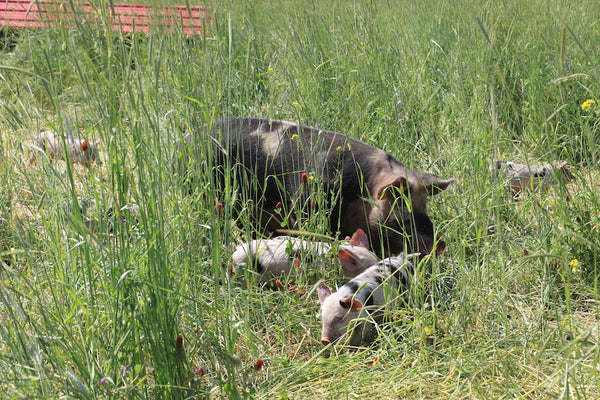
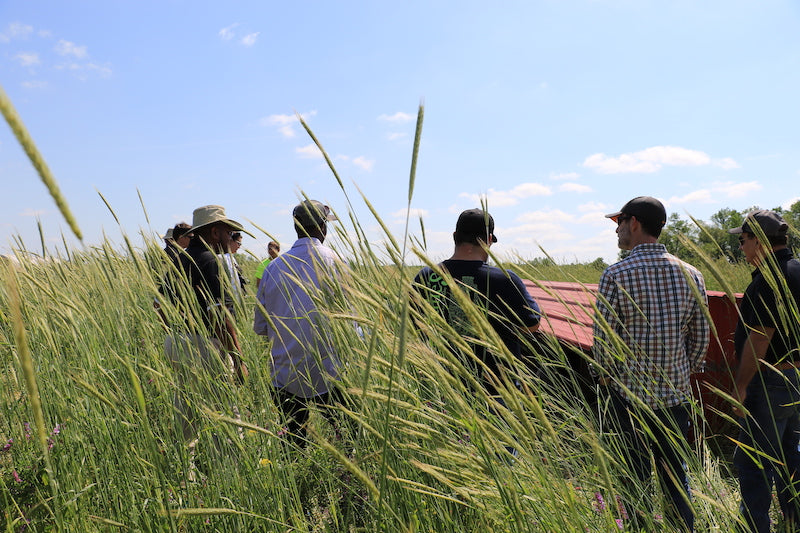
Then, we saw some of the Aberdeen Angus cattle used for our Heritage Beef.
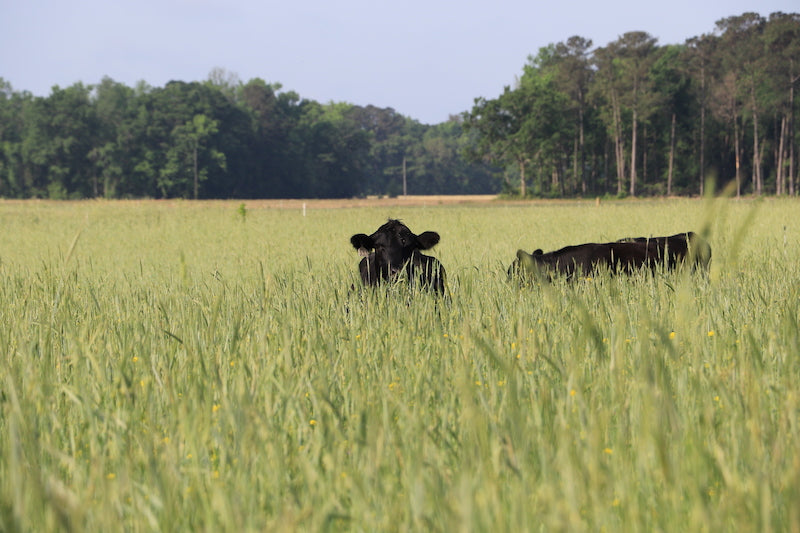
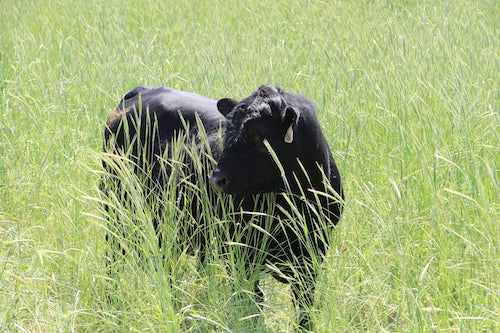
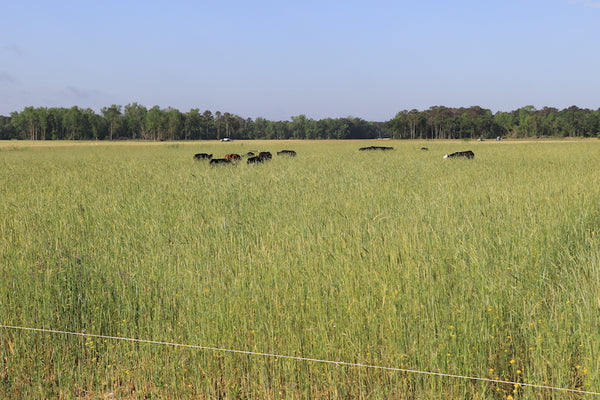
On our last trolley stop, we saw the always impressive rainfall simulator and slake test demonstrations, to further display how land management practices impact the soil’s ability to absorb and hold water.
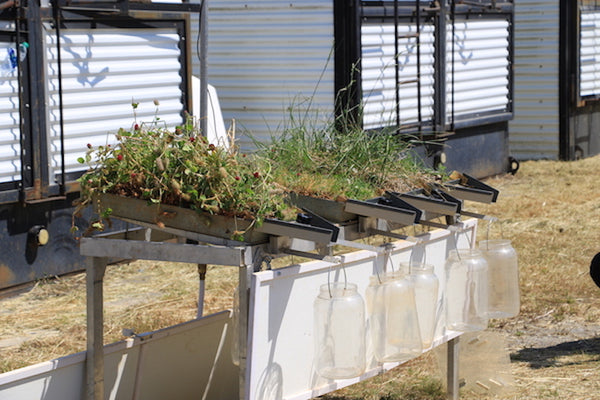
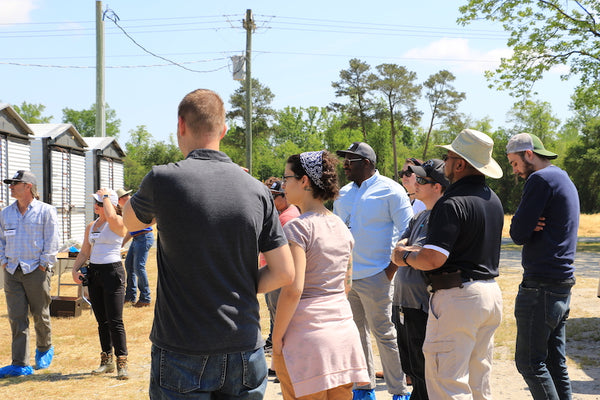
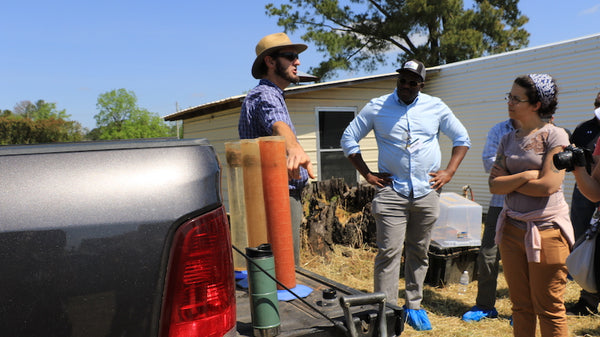
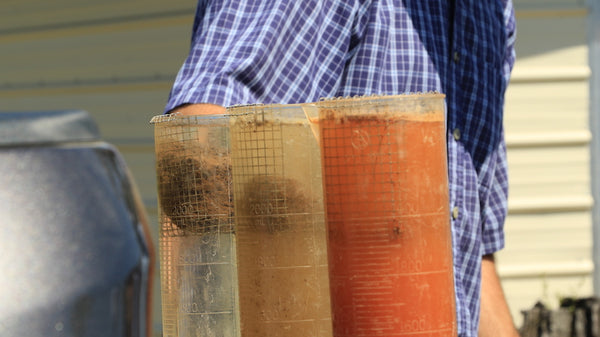
Our lunch pig pickin' was outstanding thanks to the folks at Original Grills who cooked a Joyce Farms whole hog for the occasion!
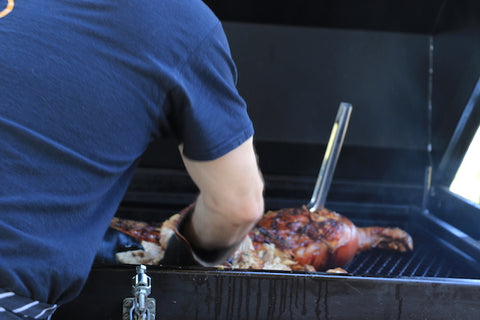
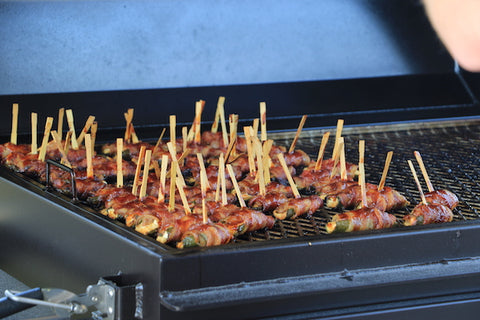
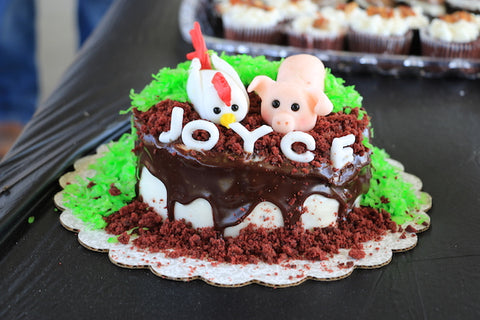
After lunch we hit the road for one of our Heritage Poulet Rouge® Chicken farms in Siler City, NC, managed by our farm partner Larry Lemons. Our guests were able to hear more about the steps we take to raise these birds, including bringing in breeder eggs from France and hatching them in our hatchery. They were also able to see multiple flocks of birds at different stages of growth, and get a first-hand look at the amount of space they have to run around and just be chickens!
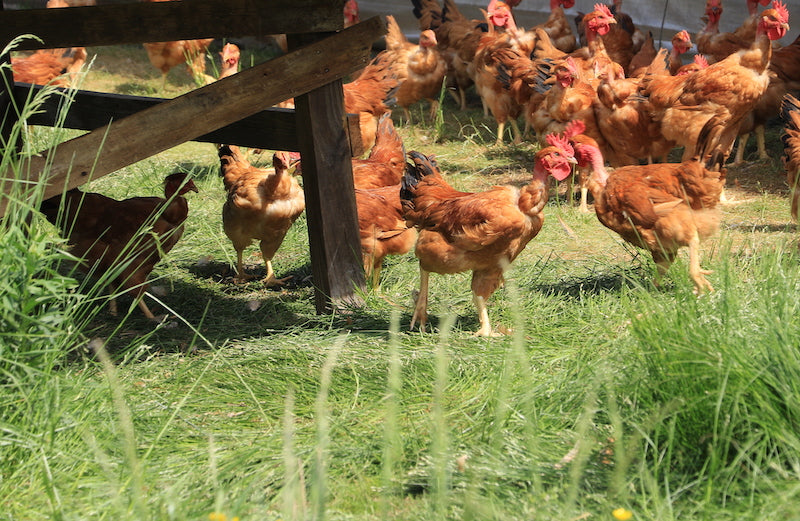
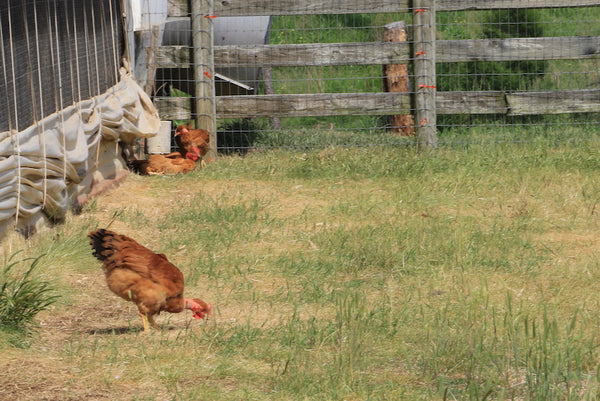
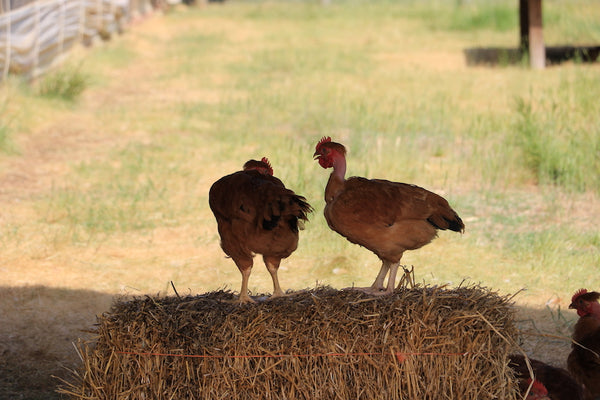
We are so thankful to our guests who took the time to come out for a 2-day, information packed Farm Tour! All of us at Joyce Farms are incredibly proud of not only the products we produce, but how we produce them, and we are happy to have the opportunity to share more about that with our customers.
See more photos from the tour on our Facebook page!
April 30, 2025 0 Comments
Food waste is a challenge across the food system—but there are practical ways to do better. On Stop Food Waste Day, we’re sharing how farms, chefs, and home cooks can make small changes that add up to lasting impact.
October 11, 2024 0 Comments
In the wake of Hurricane Helene's devastation, Asheville’s culinary community is coming together to offer more than just food. From hosting fundraising events to donating meals and resources, these chefs, restaurateurs, and food artisans are playing a vital role in relief efforts, feeding hope to those in need.
August 30, 2024 0 Comments
As consumers become more conscious about the origins of their food, labels on meat and poultry offer reassurance that our choices align with our values. However, new USDA guidelines aimed at strengthening these claims bring a new challenge: balancing trust in these labels with the rising costs of maintaining them, especially for small producers. Explore how these changes could impact the food you choose and the diversity of options available.
© 2025 Joyce Farms.
Powered by Shopify
